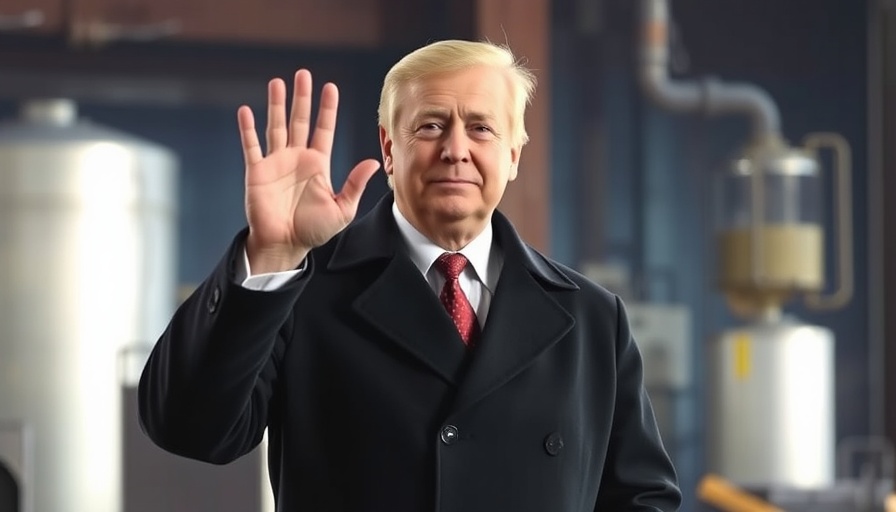
The Implications of Tariffs on the U.S. Auto Industry
President Donald Trump's decision to increase tariffs on imported cars to 25% has sparked a heated debate among U.S. carmakers and consumers alike. While the intention behind these tariffs may be to boost domestic production, industry leaders are concerned that this could lead to significant price hikes that will ultimately burden consumers.
Understanding the Tariff Policy Shift
The president is leveraging a loophole that allows for executive control of trade policy, bypassing Congress. This shift could invite various responses from manufacturers, including cost-cutting measures or, in less favorable scenarios, price increases on vehicles sold in the U.S. The automotive sector is vital to many local economies, making their response to such tariffs crucial not just for carmakers, but also for American workers and consumers.
The Consumer Impact: A Growing Concern
Consumers are already grappling with rising prices and may find themselves paying even more if manufacturers opt to pass on the tariff costs. It raises a pertinent question: How will these tariffs impact consumer behavior? Will buyers continue to invest in new vehicles or lean towards used options? Understanding consumer behavior trends will be vital for carmakers navigating this complex landscape.
Historical Context of Tariffs and Industry Response
This isn't the first time tariffs have altered the automotive landscape. Historical precedents show that tariffs can lead to unintended consequences for domestic production. An example from the past is the 1980s tariff on Japanese cars, which initially benefited U.S. automakers by shielding them from foreign competition but eventually led to a backlash against higher prices.
Future Predictions: Navigating the Challenges Ahead
Looking forward, automotive companies must craft strategic responses to the looming uncertainty. While some may choose to absorb costs, others may increase prices, potentially driving consumers towards more economically viable options. This divergence underscores a critical intersection of policy and market dynamics that will shape the future of U.S. car manufacturing.
As these developments unfold, it is imperative for stakeholders—from manufacturers to consumers—to stay informed about evolving tariffs and their implications. Engaging with the current state of the automotive industry and understanding market trends can aid in making proactive business decisions.
In light of these changes, businesses must prepare for potential shifts in consumer preferences and adapt their strategies accordingly. This adaptability is essential for sustaining growth in an increasingly complex market environment.
 Add Row
Add Row  Add
Add 



Write A Comment